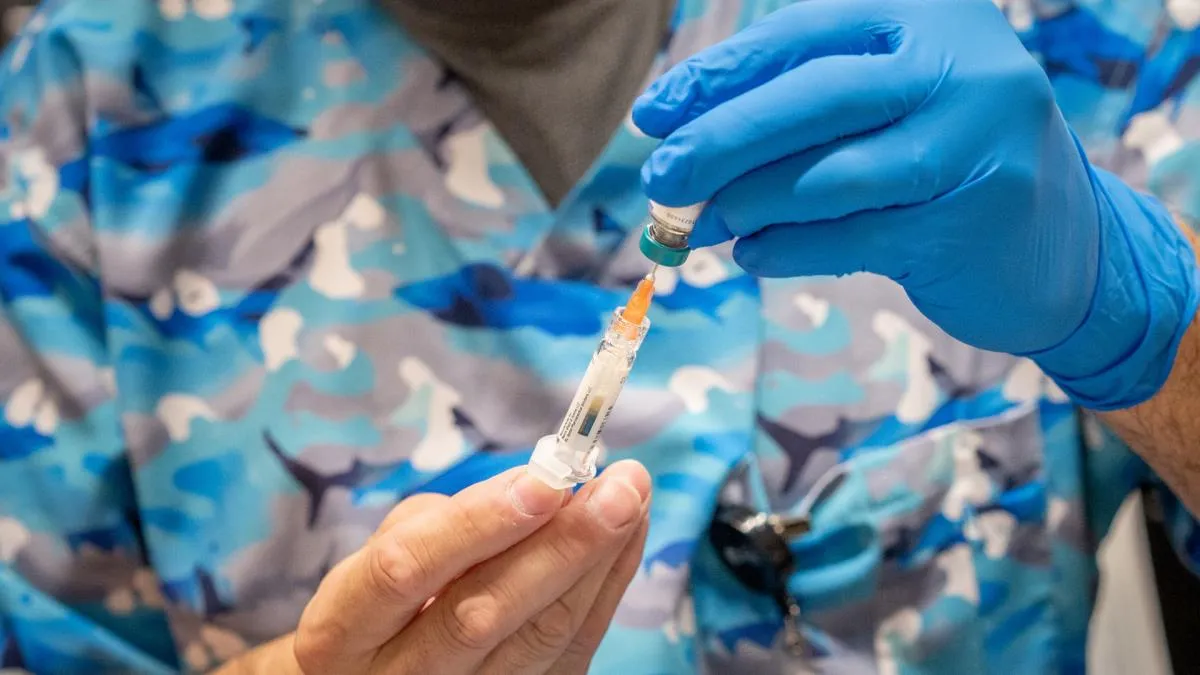
Just 25 years ago, the disease known as measles was declared eliminated in the U.S. However, this year has seen a troubling resurgence, marked by the first measles-related death on U.S. soil since the elimination declaration. Many cases have been imported from international travelers returning from regions like Europe, Africa, or Asia. This year also saw Robert F. Kennedy Jr., a controversial figure with a history of anti-vaccine advocacy, appointed as the head of the Department of Health and Human Services. In a recent opinion piece for Fox News, he vaguely acknowledged the role of vaccines in preventing measles but failed to deliver a clear message, suggesting parents consult healthcare providers without explicitly endorsing vaccination.
Kennedy's past includes leading an anti-vaccine organization notorious for spreading misinformation, which ultimately led to its removal from Facebook. In stark contrast, the World Health Organization (WHO) emphasizes that "being vaccinated is the best way to prevent getting sick with measles or spreading it to others." The Centers for Disease Control and Prevention (CDC) also provides clear information, stating that the best protection against measles is the measles, mumps, and rubella (MMR) vaccine.
While public health officials in places like Texas work to manage the latest outbreaks, Kennedy's appearances on platforms like Fox News have downplayed the dangers of measles and promoted the idea that the disease might not be as harmful as vaccination. To combat this misinformation, it’s crucial to disseminate accurate information about measles and the effectiveness of the measles vaccine.
The most critical point to understand is that the MMR vaccine serves as the best defense against measles. According to the WHO, measles vaccination has saved an estimated 60 million lives worldwide from 2000 to 2023. Most measles fatalities occur among children under five who are either unvaccinated or who haven't received the recommended two doses of the vaccine on schedule.
There are two primary types of measles vaccines available: the MMR vaccine, which protects against measles, mumps, and rubella, and the MMRV vaccine, which adds protection against varicella (chickenpox). The CDC recommends that children receive their first dose between 12 to 15 months and the second dose between 4 to 6 years of age. Infants traveling or living in areas experiencing outbreaks may receive a dose as early as 6 months, but they will still need the two standard doses to ensure lasting protection.
Measles is one of the most contagious diseases known, with a potential to infect 12 to 18 people for every infected individual. In the past, prior to widespread vaccination, the U.S. faced approximately 500,000 cases of measles annually, leading to 500 deaths, 48,000 hospitalizations, and 1,000 cases of permanent brain damage due to encephalitis. Measles is so contagious that even after an infected person leaves a room, the virus can remain airborne for up to two hours.
This level of contagion underscores the importance of vaccination. Public health authorities often alert communities when a measles case has been confirmed in public spaces, urging anyone who may have been exposed to consult with their healthcare provider about vaccination options.
Contrary to claims made by anti-vaccine proponents, including Kennedy, the measles vaccine does not cause the same illnesses as the disease itself. In fact, the vaccine is associated with only 1-2 cases of encephalitis per one million vaccinated children, whereas measles can lead to encephalitis in 1-3 children per thousand infected. This stark difference highlights the significantly greater risk associated with the disease compared to the vaccine.
Furthermore, there have been no confirmed deaths linked to the MMR vaccine in healthy individuals. A few rare cases of adverse reactions have occurred in immunocompromised children, emphasizing the importance of consulting with healthcare providers to determine the vaccine's suitability.
If you've been exposed to measles, the MMR vaccine can still offer protection if administered within 72 hours of exposure. Additionally, an alternative treatment is the administration of immunoglobulin, but it should be noted that you cannot receive both at the same time, as they can cancel each other out.
While natural immunity from past infections may last longer than vaccine-induced immunity, the MMR vaccine provides a robust defense. After one dose, the vaccine offers about 93% protection against measles, which increases to 97% after the second dose. Although some waning of immunity can occur, studies suggest it is significantly less than what some anti-vaccine advocates claim.
Historically, natural immunity was the only means of protection. However, this approach came with serious risks. Before the vaccine, measles was a common childhood illness, and it resulted in countless deaths, including tragic cases like that of Roald Dahl's daughter. The vaccine allows individuals to gain immunity without risking severe complications or death.
With vaccination being crucial for public health, it's essential to know who is considered immune. If you were born before 1957, you are generally assumed to have already encountered the disease. Additionally, having medical records of receiving two doses of the vaccine or having a laboratory-confirmed case of measles also indicates immunity. If unsure, consult your healthcare provider, as receiving an additional dose poses no harm.
In conclusion, vaccination remains the most effective safeguard against measles, a highly contagious and potentially deadly disease. By prioritizing accurate information and encouraging vaccination, we can protect ourselves and our communities from the resurgence of measles.